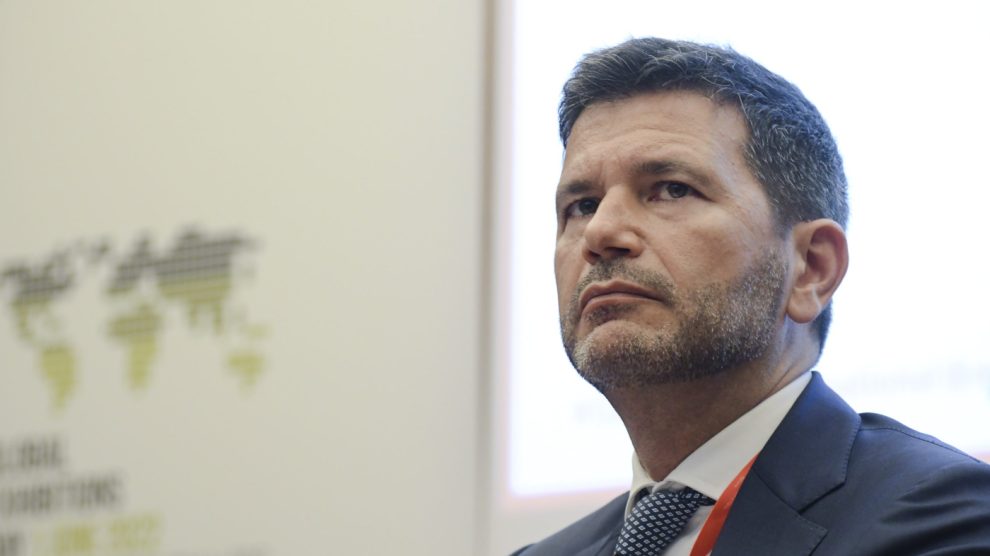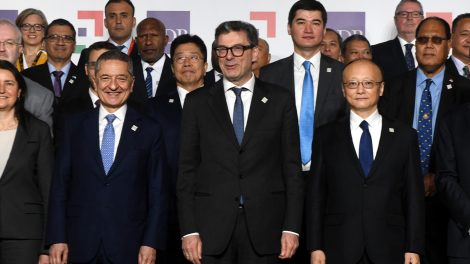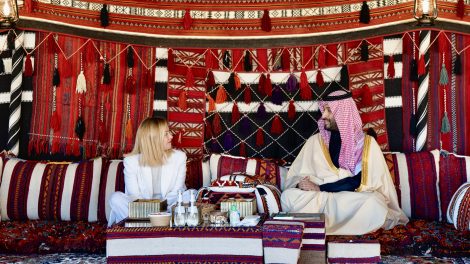Shifting patterns, rising opportunities. As the world reorganises its supply chains, the Mediterranean and African regions are taking on increasingly strategic roles. Infrastructure and connectivity “are keywords that should guide the path of sustainable investments and regional policies,” starting with cooperation in the energy sector.
- That’s the key takeaway from a speech by Pasquale Salzano, former Italian ambassador and current President of SIMEST (CDP Group). He was speaking at a conference in Rome, organised by Confindustria Assafrica & Mediterraneo – the regionally-focussed arm of Italy’s chamber of commerce.
- “SIMEST and the entire CDP Group are already working in this direction,” added Mr Salzano, “promoting the internationalisation of Italian companies and the digital and green transition to fully seize the region’s potential.”
The global battle for Africa. The continent is steadily gaining importance in the strategic planning of countries such as Italy, explained the former ambassador, attracted by its potential – which in turn has become terrain for competition between powers.
- The European Union is already far ahead in thinking about forms of cooperation for development, many of which are included in the so-called Global Gateway plans.
- China and Russia are competitors to be managed, while – as evidenced by the Africa-focussed summit underway at the White House – the United States, too, has rediscovered an African interest that goes beyond mere security activities.
The Foreign Minister’s take. Echoing the words that Prime Minister Giorgia Meloni then brought to Brussels, FM Antonio Tajani remarked on the need for an African political strategy. Rome, he explained, “does not look at Africa from a predatory or colonialist point of view.” Instead, it aims to pursue a dual Italian and European strategy based on investments and mutually beneficial cooperation.
- “We are convinced that Africa’s stability is a crucial upstream solution to the problems of a continent that will have 2.5-3 billion inhabitants in 2050,” added Mr Tajani, stressing the need for “a short-, medium- and long-term project” – where Italy might play a leading role, as PM Meloni prophesied in her first week in office.
- FM Tajani noted it’s best to work with other EU States – which might well be another source of competition that Italy is willing to tackle head-on – to jointly coordinate funding and the relationship, which is crucial for all.
- “France has a very established relationship in Africa, but Italy has the ability to relate to others with a somewhat more flexible attitude,” remarked the Italian foreign ministers, pointing at the large participation of African and Mediterranean delegations at the Med Dialogues held earlier this month in Rome.
The business side. Barbara Beltrame, Confindustria’s Deputy President for Internationalisation, called upon the Italian companies and State to “work as a system and do it strongly,” providing insurance tools to protect business endeavours in Africa and focus on the “foreign vocation” of Italian companies.
- “I believe that Africa is an unexpressed Continent that is blooming right now: we must have the strength to succeed there,” she remarked. “Africa, the Mediterranean and the neighbouring Middle East are a natural and crucial basin of interest for our business system, a macro-area of development for investment policies, trade relations, and internationalisation.
Stability entails development. As Africa increasingly enters the world’s supply chains, it will weigh more and more on the global scales, added Massimo Dal Checco, President of Confindustria Assafrica & Mediterraneo. Thus, “Italy must recover its presence and competitiveness in historic markets that are strategic for our economy, such as Libya, where the stability of all Mediterranean economies and the centrality of the development of our companies in the sub-Saharan area are at stake.”
- There is ample space for Italian companies – both SMEs and large ones – in sub-Saharan Africa, he explained, speaking of “a single goal shared by all: to strengthen the role of Italian companies in these territories.” And Italy “must play a leading role by acting on multiple levels, including through greater attention to the Europe-Africa partnership.”




